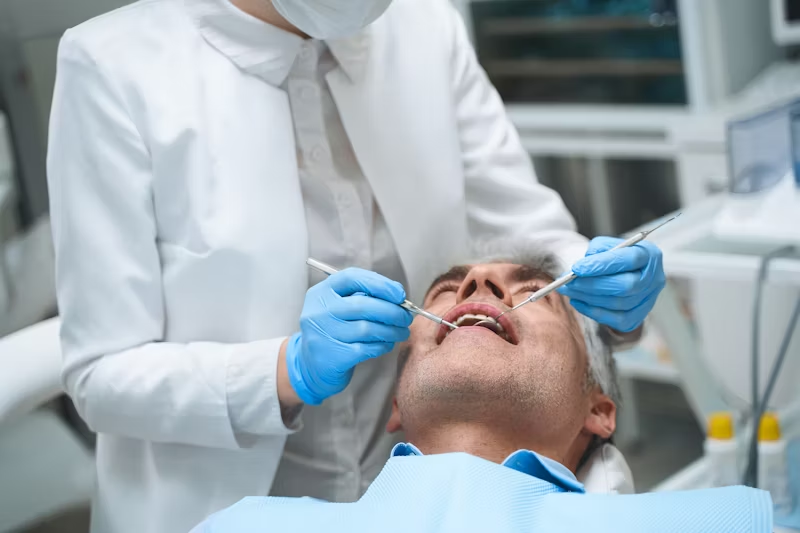
What Happens If My Root Canal Falls Out?
If you’ve ever had a root canal procedure, you know it’s a vital treatment for saving a tooth that is severely decayed or infected. Root canals have a high success rate and can provide long-term relief. However, as with any dental procedure, complications can arise, and one potential concern is the possibility of your root canal “falling out.” In this blog post, we’ll explore what could happen if your root canal falls out and how to manage the situation.
Understanding Treatment
Before we dive into the potential issues, it’s essential to understand what a root canal involves. During a root canal, the dentist or endodontist removes the infected or damaged tissue inside your tooth (the pulp) and thoroughly cleans and seals the space. The goal is to save the tooth from extraction and restore it to full function.
Typically, after a root canal, the tooth is restored with a crown, which acts as a protective cover. This crown helps prevent further infection and provides the tooth with the necessary strength to function like a natural tooth. In rare instances, complications can arise, leading to the crown or the material inside the tooth coming loose or falling out.
Why Could a Root Canal Fall Out?
When people refer to a “root canal falling out,” they are usually referring to the crown or filling that covers the tooth after the root canal was placed. Here are a few reasons why that would happen:
- Wear and Tear: Over time, crowns and fillings can wear down, especially if you grind your teeth or have an improper bite. This gradual wear can cause the crown to become loose and eventually fall off.
- Decay Around the Crown: If there is an issue with the sealing of the crown or if bacteria manage to enter the space around the crown, decay can begin to develop. This decay may weaken the bond between the crown and the tooth, causing it to loosen or fall off.
- Infection in the Root Canal: In some cases, if the root canal didn’t fully address the infection, or if bacteria re-enter the tooth, an infection can occur inside the root. This can weaken the tooth structure and lead to issues with the crown or the materials used in the root canal.
- Trauma or Injury: A blow to the mouth, such as from an accident or sports injury, can cause damage to the tooth and the root canal procedure, leading to the crown or filling coming loose.
What Should You Do Next?
If your root canal or the crown protecting it falls out, it’s essential to address the issue quickly to prevent further complications. Here’s what you should do:
- Call Your Dentist Immediately: If you notice that your crown or filling has fallen out, contact your dentist as soon as possible. They can schedule an appointment to assess the situation and recommend the appropriate treatment.
- Save the Crown: If the crown has fallen out, try to find it and keep it safe. Your dentist may be able to reattach the crown if it is still intact and in good condition. In some cases, a new crown may need to be made.
- Avoid Using the Affected Tooth: Until you can see your dentist, try to avoid using the tooth to chew food. Biting down on it can cause further damage and introduce bacteria into the exposed tooth.
- Maintain Good Oral Hygiene: Continue brushing and flossing your teeth, but be gentle around the affected area. Keeping the tooth clean will reduce the risk of infection and help prevent further issues.
- Pain Management: If the exposed tooth or root canal area is causing discomfort, over-the-counter pain relievers can help temporarily alleviate the pain. However, avoid placing anything directly in the hole left by the fallen crown.
How Can You Prevent?
While some issues are beyond your control, there are steps you can take to minimize the chances of your root canal or crown falling out:
- Follow Up with Your Dentist: Regular checkups after a root canal are essential to monitor the health of your tooth and crown. Your dentist can catch any potential issues early, such as decay or damage to the crown.
- Protect Your Teeth: If you grind your teeth at night, consider wearing a mouthguard. This will reduce pressure on the crown and help prevent wear. Additionally, avoid using your teeth to open packages or chew on hard objects that could damage the crown.
- Proper Oral Care: Practice good oral hygiene by brushing twice a day and flossing regularly. This will help prevent bacteria from entering the tooth and causing further decay.
While it’s rare for a root canal and its crown to fall out, it’s not something that should be ignored. If this happens to you, it’s essential to take quick action by contacting your dentist, saving the crown if possible, and following their instructions. With the right care, you can prevent further damage and maintain the health of your tooth. Regular dental visits and good oral hygiene are key to ensuring your root canal remains intact and functional for years to come.
